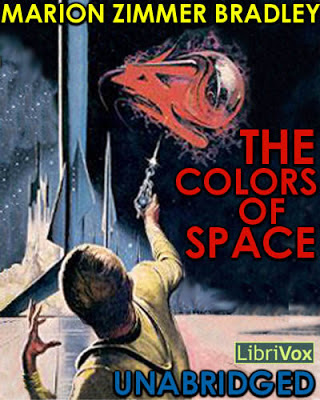The Colours of Space was written in 1963. I think if it was written now, it would certainly be counted as YA and would probably have been written with a different tone. I'm not sure it stands up to today's market. As it is, it provides an interesting view of science (fictional) ideas from the 60s including a misconception that the title is based on.
The main character, Bart, is seventeen and has just graduated as an astro(navi)gator. When waiting to meet his father at the spaceport, a different man shows up, claiming to be his father. Bart goes along with it because he doesn't want to put the man's life in danger from the alien Lhari who have a monopoly on interstellar travel. Supposedly, this is because humans can't survive the warp drive without being in suspended animation sleep but as Bart soon learns as he becomes embroiled in interstellar events, this isn't the entire story.
The main thing, I found, which distinguished this book from more modern YA is how stupid the main character was. Of course many YA characters make stupid decisions
An other major source of amusement for me was the outdated science. The title of the novel — The Colours of Space — refers to the stars being much more brightly coloured when seen in space, as compared with when seen from inside the Earth's atmosphere. (There's another reference there to plot elements as well, which I won't spoil, but I read the main reference as being to the multi-coloured stars.) The thing is, the phenomenon, as described in the story, is not entirely real. Yes, stars come in different colours, but those colours range from red to yellow, white and blue. There are no green stars. More on this over at my science in fiction blog.
And then there's the hilarious retro-futuristic technology. The humans of the future frequently travel between planets and, with alien help, between stars, but they can't easily transmit an image. Law enforcement is forced to rely on merely a description to catch a fugitive — not even with a name attached! And they all have papers (as in travel documents) made out of actual paper. Apparently also without photos attached, which is slightly baffling since passports have had photos since before the book was written.
But anyway, I enjoyed The Colours of Space despite its dating flaws. It was a fun story and I always enjoy seeing how science understanding has changed in science fiction. I'm not sure who to recommend it to other than other fans of retro science fiction (I certainly don't regret reading it over another audiobook). As I mentioned earlier, I'm not sure it would be entirely appreciated by a teen used to modern YA.
3.5 / 5 stars
First published: 1963. Edition read: LibriVox, 2007
Series: No.
Format read: Audiobook
Source: LibriVox


No comments:
Post a Comment
Note: only a member of this blog may post a comment.